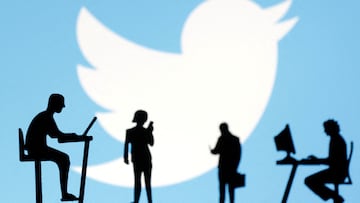Twitter users to be charged for text message account security
Starting 20 March, two-factor authentication on Twitter will only be available to paid Twitter Blue subscribers, as text message method is restricted.


Twitter has announced that it will only allow paid subscribers to use text messages as a two-factor authentication (known as 2FA) method to secure their accounts. The change will come into effect from 20 March, and “only Twitter Blue subscribers will be able to use text messages as their two-factor authentication method,” the company tweeted on Friday.
Why is Twitter changing its policy?
Two-factor authentication is a security measure that requires an account holder to use a second authentication method in addition to a password. Twitter offers 2FA by text message, authentication app, and a security key. However, the company believes that phone-number-based 2FA is being abused by “bad actors,” according to a blog post that the company’s tweet linked to on Wednesday.
I think Musk's end goal is to make Twitter unusable for non subscribers. This'll get significantly worse in coming months https://t.co/egvbCmrQOq
— Ketan Joshi (@KetanJ0) February 18, 2023
Twitter owner Elon Musk also commented on the change, tweeting “Yup” in response to a user’s tweet that suggested the company was changing its policy because telcos used bot accounts to pump 2FA SMS, and that the company was losing $60 million a year “on scam SMS.”
Related stories
In addition to this change, Twitter has also announced that the blue check mark, which was previously free for verified accounts of politicians, famous personalities, journalists, and other public figures, will now be available to anyone who is prepared to pay. Last month, Twitter said it would price the Twitter Blue subscription for Android at $11 per month, the same as for iOS subscribers.
Beginning March 6, only Twitter Blue subscribers may post the letter "E." All other vowels will remain available.
— pourmecoffee (@pourmecoffee) February 18, 2023
The move to make 2FA by text message a paid feature is likely to receive mixed reactions from Twitter users, with some, like the one above, already mocking the move on the same platform. Twitter’s decision to monetize the blue check mark has already been controversial, with critics arguing that it could lead to a proliferation of fake accounts and misinformation on the platform.

